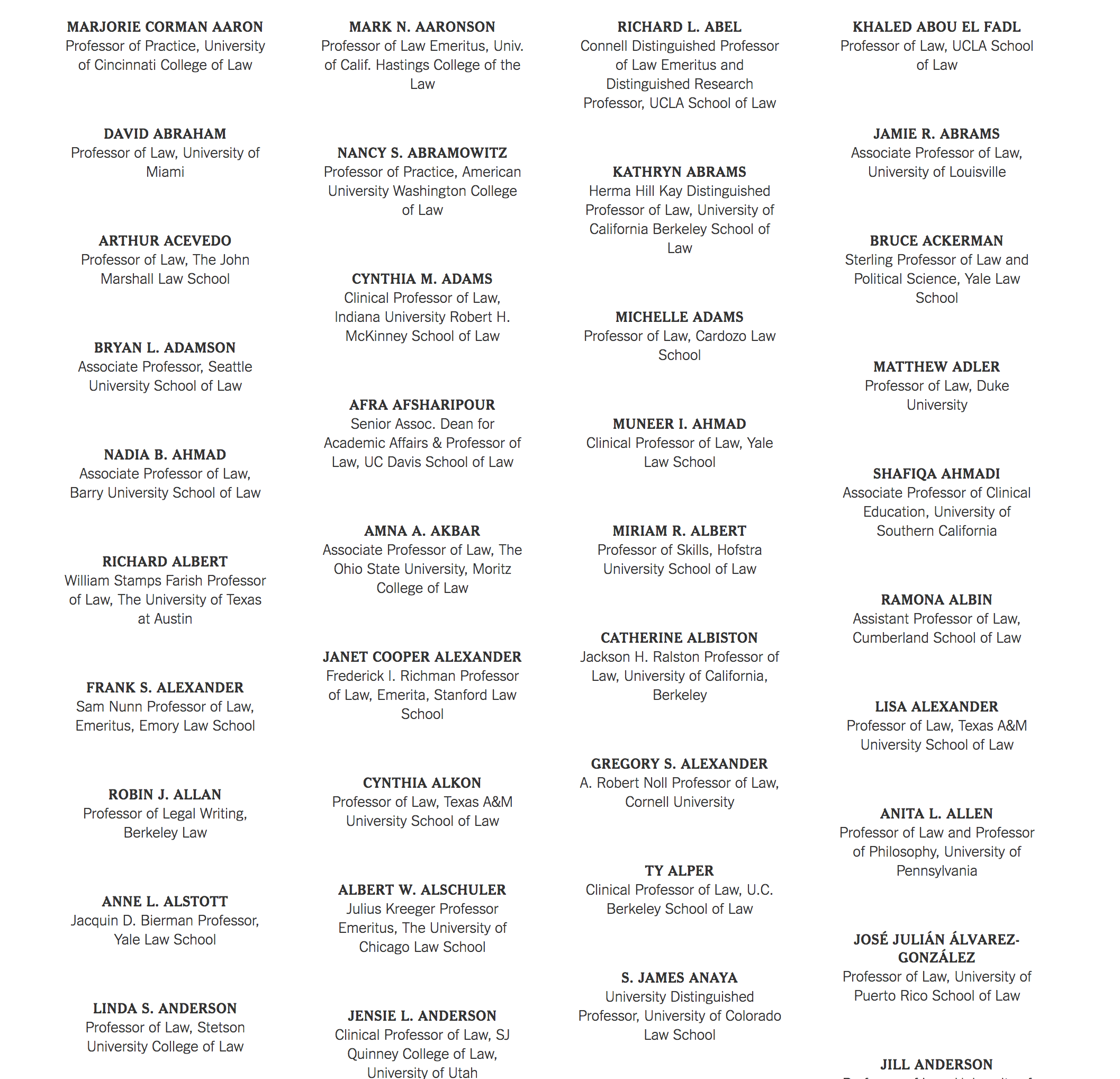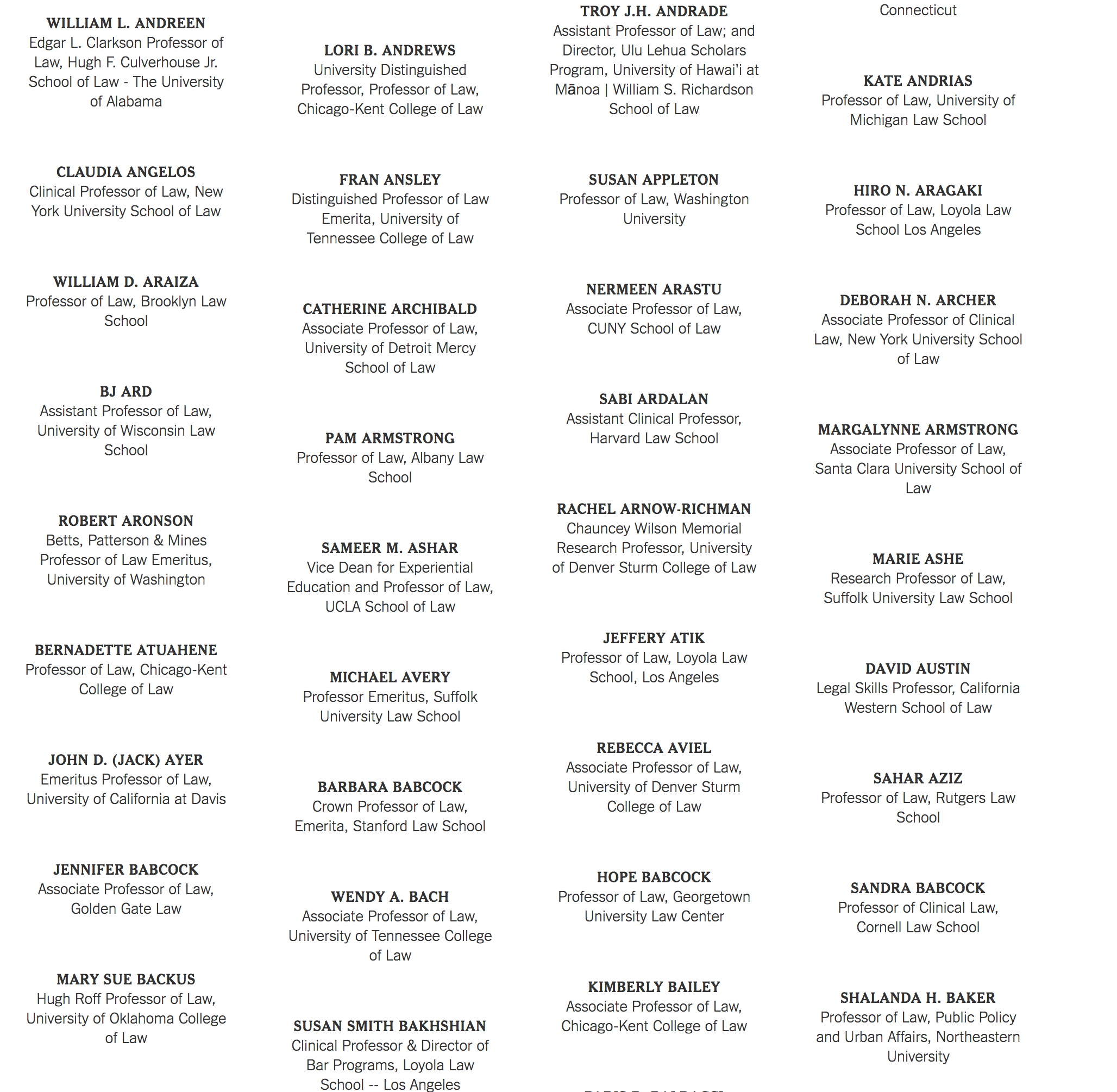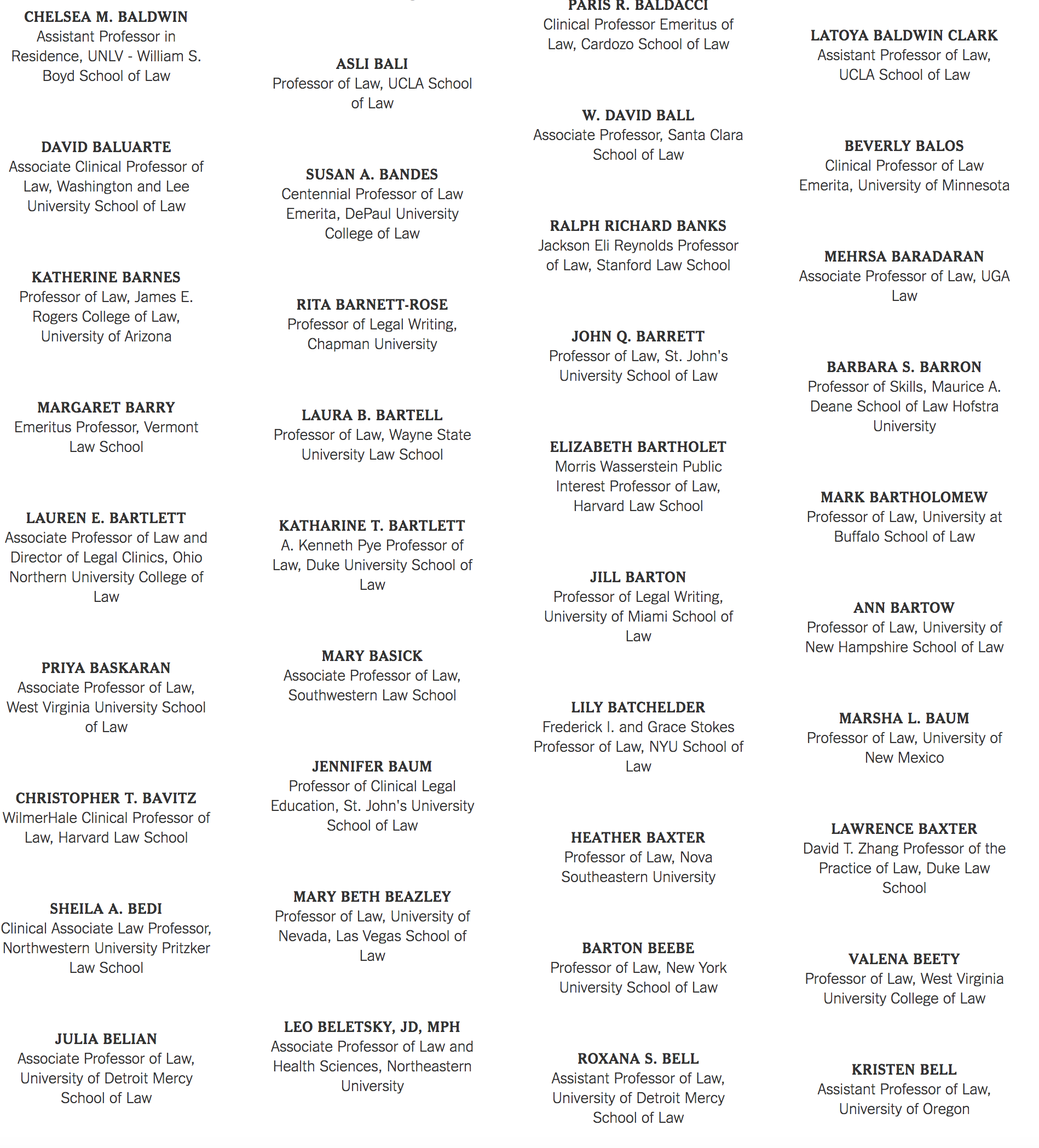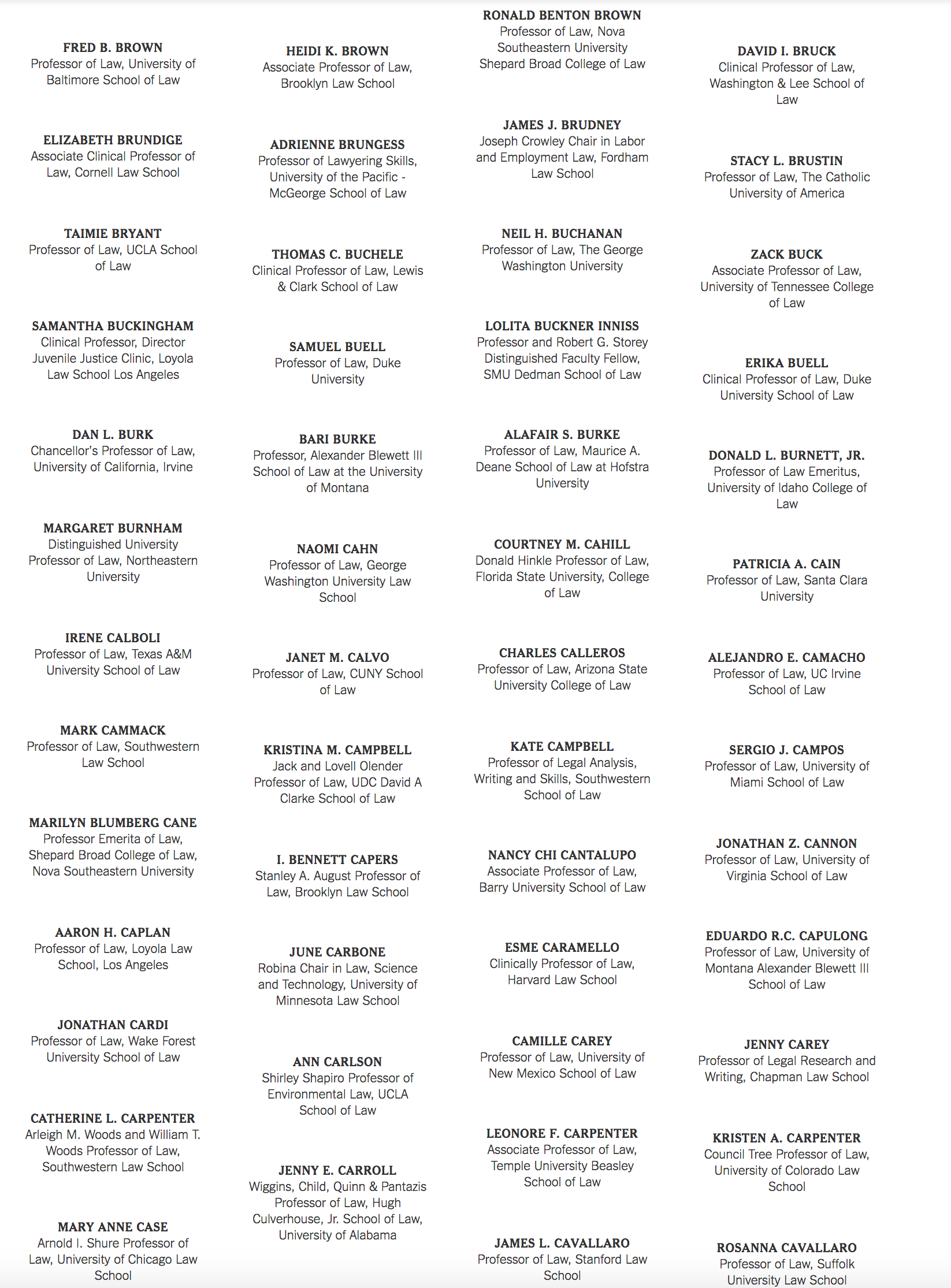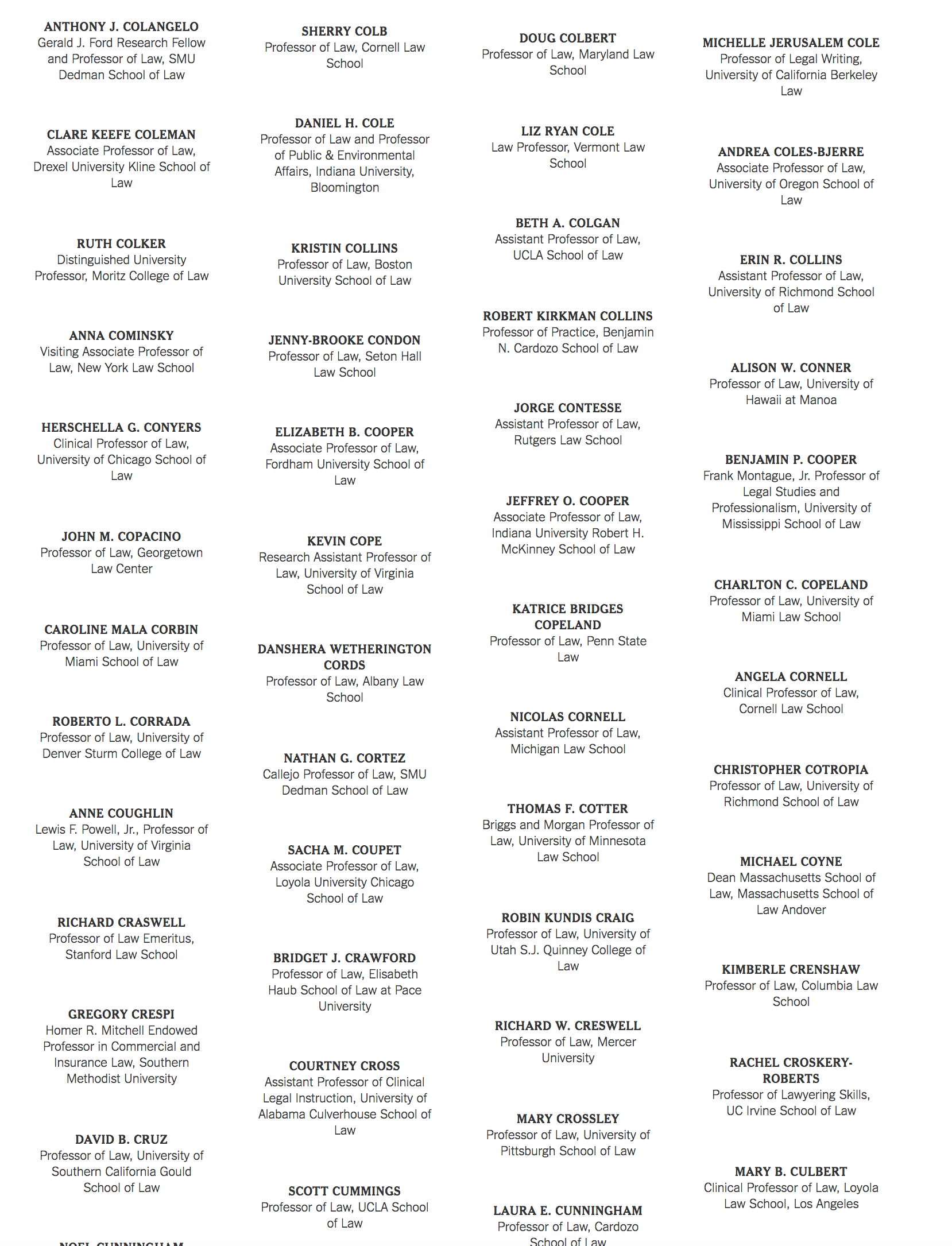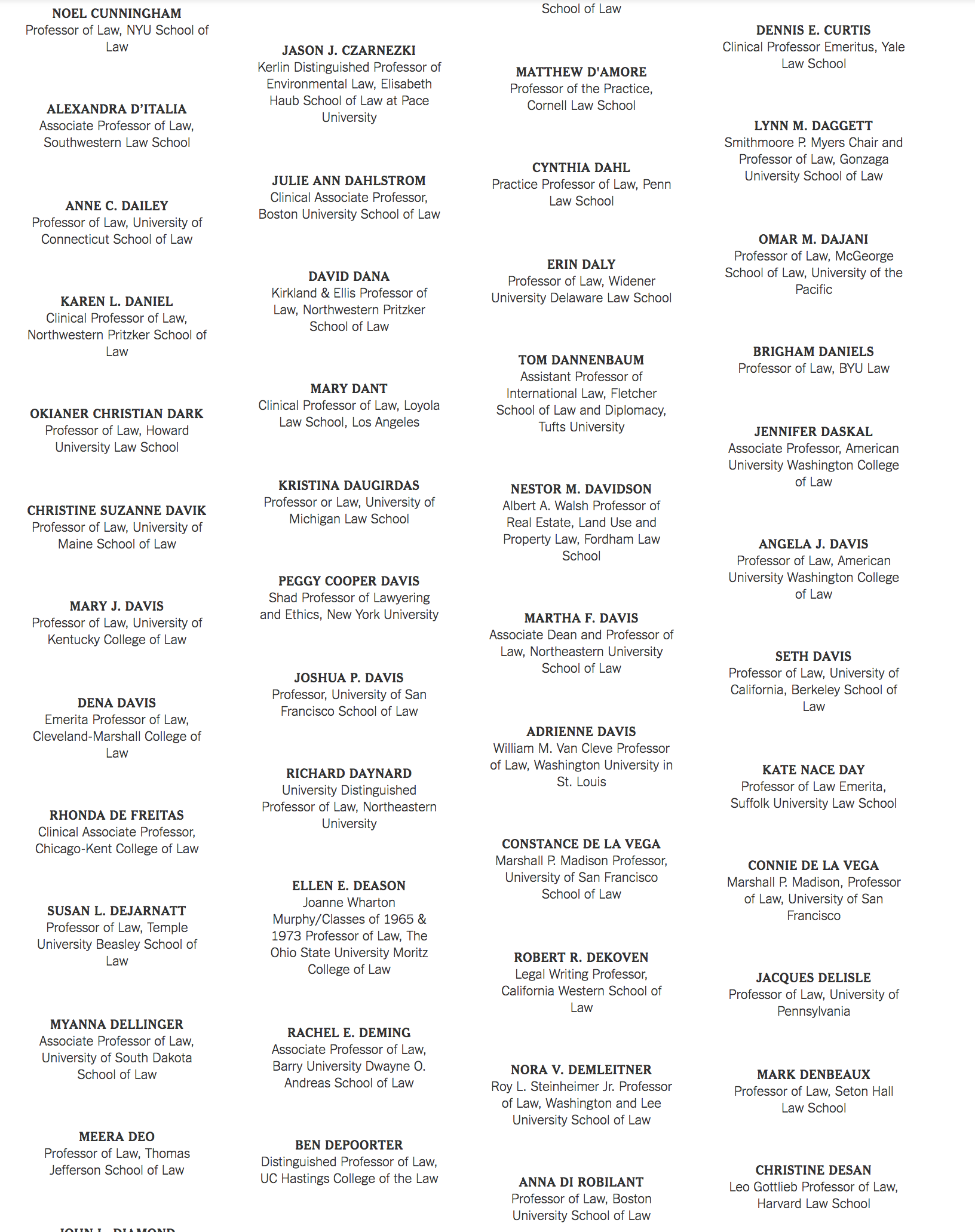Almost 900 of those law professors who claimed that Kavanaugh was unfit to serve on the highest court in the land were women, according to The New York Times.
Those women signed their names to a letter to the United States Senate. The letter is a dynamic document, updated as additional signatures arrive. The letter’s main point was that “judicial temperament” is vital for any judge.
‘Judicial temperament is one of the most important qualities of a judge. As the Congressional Research Service explains, a judge requires “a personality that is even-handed, unbiased, impartial, courteous yet firm, and dedicated to a process, not a result.” The concern for judicial temperament dates back to our founding; in Federalist 78, titled “Judges as Guardians of the Constitution,” Alexander Hamilton expressed the need for “the integrity and moderation of the judiciary.”’
These law professors regretted the necessity for sending the letter, but they believed Kavanaugh clearly “displayed a lack of judicial temperament:”
‘We are law professors who teach, research and write about the judicial institutions of this country. Many of us appear in state and federal court, and our work means that we will continue to do so, including before the United States Supreme Court. We regret that we feel compelled to write to you, our Senators, to provide our views that at the Senate hearings on Sept. 27, Judge Brett Kavanaugh displayed a lack of judicial temperament that would be disqualifying for any court, and certainly for elevation to the highest court of this land.’
They continued, writing that Kavanaugh’s testimony before the Senate Judiciary Committee was “intemperate, inflammatory:”
‘The question at issue was of course painful for anyone. But Judge Kavanaugh exhibited a lack of commitment to judicious inquiry. Instead of being open to the necessary search for accuracy, Judge Kavanaugh was repeatedly aggressive with questioners. Even in his prepared remarks, Judge Kavanaugh described the hearing as partisan, referring to it as “a calculated and orchestrated political hit,” rather than acknowledging the need for the Senate, faced with new information, to try to understand what had transpired. Instead of trying to sort out with reason and care the allegations that were raised, Judge Kavanaugh responded in an intemperate, inflammatory and partial manner, as he interrupted and, at times, was discourteous to senators.’
The law professors wrote that there are two reasons a judge must withdraw: if he is “perceived as or of being unfair” and being impartial:
‘As you know, under two statutes governing bias and recusal, judges must step aside if they are at risk of being perceived as or of being unfair. As Congress has previously put it, a judge or justice “shall disqualify himself in any proceeding in which his impartiality might reasonably be questioned.” These statutes are part of a myriad of legal commitments to the impartiality of the judiciary, which is the cornerstone of the courts.’
Clearly, the professors had a myriad of views about other parts of the judge’s testimony and Dr. Christine Blasey Ford’s accusation that Kavanaugh attempted to rape her. Dr. Ford was just 15-years-old, and Kavanaugh was very drunk:
‘We have differing views about the other qualifications of Judge Kavanaugh. But we are united, as professors of law and scholars of judicial institutions, in believing that he did not display the impartiality and judicial temperament requisite to sit on the highest court of our land.’
There were 1700 signatures — and counting.
UPDATE: The number of law professors who signed the letter has reached 2400, according to The Washington Post.
This list of names reaches only through the “D’s. For a full list of the law professors signatures, go to the New York Times.
Featured image is a screenshot via YouTube.



